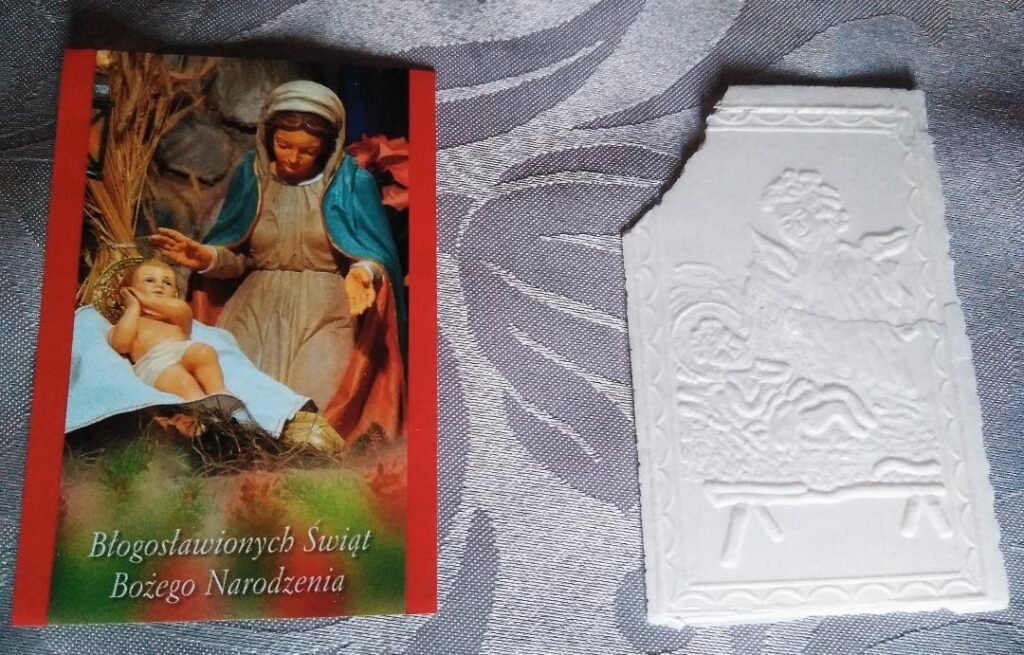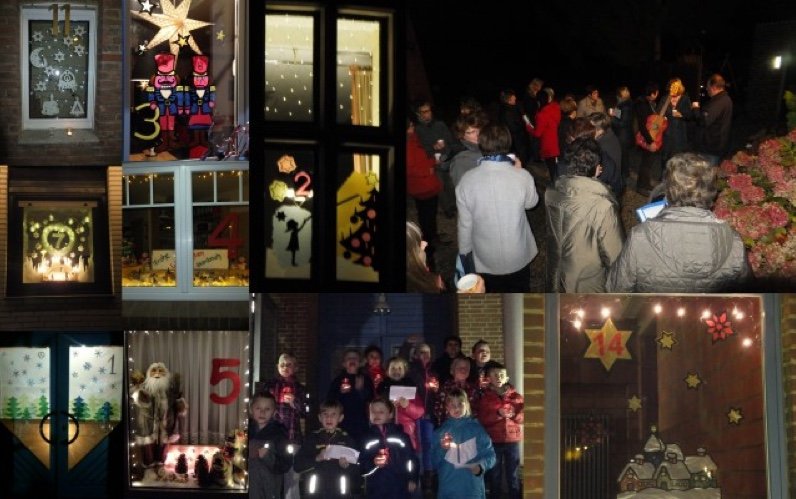The celebration of Christmas, in Poland, is something magical. I will simply share a few “brushstrokes” of this special time.
In Poland we begin to perceive the Christmas atmosphere already in Advent, through the celebration, before dawn, of masses called “roraty”. This name comes from a liturgical song in Latin that begins with the words «Rorate caeli desuper», whose mean is «Drop down dew, ye heavens, from above”. People participating in “roraty”, especially the children, go to mass holding in their hands lanterns that illuminate the Church in the dark.
In Poland, Christmas Eve is the culminating moment of the feast day The Christmas dinner begins as soon as it appears in the sky the first star which recalls the star of Bethlehem leading to the newborn Baby Jesus and it begins with a prayer and the reading about the birth of Jesus from the Gospel of Luke. Afterwards, everyone shares “oplatek” (it is a white bread, of fine consistency, prepared like a host), exchanging Christmas wishes. That is a symbol of reconciliation and forgiveness.
In all the houses, in Poland, it is very common to leave an empty place at the table; we set a chair, a plate and cutlery but nobody will take place there because it is reserved to welcome an unexpected person. We also put some hay under the tablecloth just to symbolize that the new born Jesus was laid in a manger.
The Christmas dinner menu consists of twelve dishes, including beetroot soup with “uszka” (small dumplings stuffed with mushrooms) and carp. After dinner, we enjoy the moment singing Christmas carols (in Poland there are more than fifty of them) and opening presents. At midnight, the families go to the Church to participate in a solemn Eucharist called “Pasterka” and to adore the Child Jesus.
Sr. GOSIA SKIBA, TC

In Germany also, the Advent season is full of traditions and symbols. The cities, streets as well as many windows of the houses, are illuminated with decorations of lights. In the old quarters of the cities there are Christmas markets.
In the evenings, families often light the Advent wreath and around it, people sing, read stories, play games, paint, pray… The Advent calendar also helps, especially the children, to wait and prepare their hearts for Christmas. It is an illustration with 24 windows; every day one is opened, discovering a sweet, a story, a proposal to be made … Since 15 years, in many Christian parishes it is realized a «Living Advent Calendar»: 24 families, institutions or organizations adorn a window of their house. At night their neighbors, parishioners or other people gather in front of this house, whose window is illuminated, read a story, sing an Advent song and, at the end, they drink some wine or a hot juice and eat some sweets, cookies or «Christstollen», a typical Christmas cake, previously made at home.
Christmas Eve is also the most important feast day in Germany; it is the feast day of meeting and union; the family gets together, shares a special meal, exchanges gifts under the Christmas tree and sings Christmas carols … But at present, it doesn’t exist only a single tradition, but each family has its own «tradition». Notwithstanding, there is a German Christmas carol that cannot be omitted in the repertoire of all German families; it is a Christmas carol lifting up the heart, and expressing in a very deep way the Christmas Eve secret: Stille Nacht, Heilige Nacht… (Silent Night).
Sr. URSULA LEUFFEN, TC





